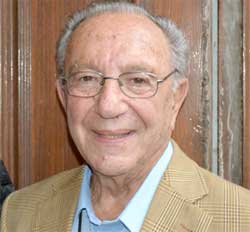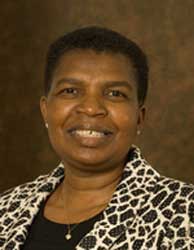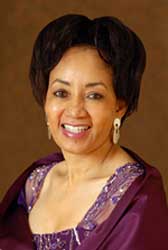Members of Parliament will no longer be allowed to do business with the government and they will have to declare state contracts and tenders awarded to family members‚ in line with a tough new code of conduct set to come into force after the election.

ANC veteran Ben Turok says the new code will be rigorously enforced. Image:
FlickrBut while Parliament looks to impose a tougher code on MPs‚ the same is not true for members of the executive or the Cabinet‚ which has its own code of ethics.
Further‚ the code was found to be lacking by Public Protector Thuli Madonsela in 2010 as it contained no penalties for transgressions.
For the past four years the Cabinet has been processing the new executive ethics code. Deputy President Kgalema Motlanthe told Parliament earlier this month the work had already been completed by last December.
The new code of conduct for MPs was processed by the joint committee on ethics and members' interests last week and is scheduled to be adopted by the National Assembly at its final sitting next month.
New code of conduct
The existing code has been criticised for being too soft on MPs. The new one sets a higher moral standard and allows for harsher penalties to be imposed for transgressions.
African National Congress veteran and committee chairman Ben Turok‚ who has driven the formulation of the new code‚ said MPs would be bound to observe "certain ethical standards that are quite far-reaching".

Disgraced former Communications Minister, Dina Pule. Image: GCIS
While the previous code related mainly to the appropriate disclosures of interests‚ the new code "is prescriptive and very strong" in the obligation that is placed on all MPs to place public interest above their own interests and to maintain public trust in the integrity of Parliament‚ he said.
Among the most controversial clauses in the new code is the prohibition placed on the holding of tenders and state contracts by MPs.
A less onerous obligation applies in the case of spouses‚ children and business partners‚ whose business dealings with the state must be declared.
Family and business partners may not hold any tender‚ or receive any benefit that arises from their relationship with the member.
Family member may not do business with govrnment
Turok said the idea was to put a stop to members who "dodged disclosures" by putting them in the name of family members.
The code would still allow MPs' family members to exercise their rights to economic activity.
MPs are also banned from using insider knowledge to pursue business initiatives and must disclose the details of any remunerated activity outside of Parliament. Details must be published in daily parliamentary papers.

Cabinet Minister Lindiwe Sisulu did much of the development work on the new code of conduct. Image: GCIS
As was the case under the previous code‚ MPs must disclose all shares and financial interests‚ directorships and partnerships‚ consultancies‚ sponsorships‚ gifts and benefits‚ foreign travel‚ pensions‚ trust income and benefits as well as long-term loans.
The ability of the ethics committee to impose sanctions on errant MPs is substantially enhanced by the new code which‚ in addition to the old penalties of a fine not exceeding 30 days' salary or a 30-day suspension‚ allows the committee to "recommend any greater sanction it deems appropriate to the house".
For example‚ Parliament was criticised for the trifling penalty of a 30-day suspension for former communications minister Dina Pule despite the serious nature of findings against her. This was in keeping with what was possible under the code.
"Arguably the committee could now go the full length against a member in its recommendations to the house‚" said Turok.
While the dismissal of an MP would be the prerogative of the party of which he or she is a member‚ a party would have difficulty going against such a recommendation.
"I know this is going to be subject to a lot of legal mumbo jumbo and there will be lawyers who say things can't be done. It will no doubt land up in court at some time‚" Turok said.
The finalisation of the executive code has still to be announced by the Cabinet‚ as does the new version of the ministerial handbook‚ which sets out the perks and privileges of the executive.
Changes to the ministerial handbook have been under way since July 2009.
In June 2012 Public Administration Minister Lindiwe Sisulu took over the project‚ which her spokesman‚ Ndivhuwo Mabaya‚ said had been presented to the Cabinet.
Source: AFP via I-Net Bridge







































